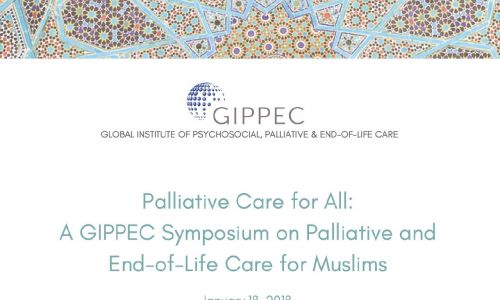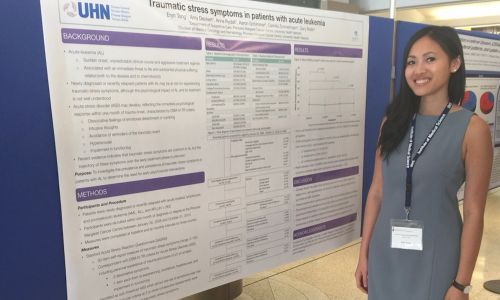
Dr. Rodin is the Director of the Global Institute of Psychosocial, Palliative and End-of-Life Care (GIPPEC) and a Professor of Psychiatry at the University of Toronto. He is a clinician-investigator who has published widely on the psychiatric and psychosocial aspects of cancer and other medical illnesses. Under his leadership, the Department of Supportive Care at the Princess Margaret has now achieved an international reputation for its academic and clinical excellence.
Dr. Rodin has authored texts on Depression in the Medically Ill, and on the Psychiatric Aspects of Transplantation and is currently leading research on the psychological impact of advanced and terminal disease in affected patients and their families.

The Global CALM Program is an international initiative to train clinicians in CALM (Managing Cancer and Living Meaningfully) therapy, gather evidence about the implementation of CALM in diverse settings, and to make CALM a standard of care for people facing metastatic and advanced cancer.
The Global Institute of Psychosocial, Palliative and...
Read more »
There is no area of medicine in which culture and religion is more important than in palliative and end-of-life care (PEOLC).
Although PEOLC has been recognized as a basic human right, the majority of those in need of such care, particularly in low and middle-income...
Read more »Dr. Gary Rodin speaks with ecancer at ASCO 2017 about a psychological intervention to help advanced cancer patients manage disease-related anxiety.
Read more »-500x300.jpg)
GIPPEC is delighted to announce the successful delivery of six CALM workshops in Chile, Italy, China, New Zealand, and Canada in 2017! The CALM workshops bring together a diverse group of oncology professionals in psychology, psychiatry, medicine, social work, nursing, palliative and spiritual care, and more, to gain training and...
Read more »CALM or Managing Cancer and Living Meaningfully, is a brief, semi-structured, evidence-based, psychotherapeutic intervention designed to help people with metastatic cancer and their caregivers manage the practical and profound problems associated with advanced disease. The primary goals of CALM are reducing and preventing psychological distress.
The CALM Therapy Training Program is...
Read more »
The “Multidisciplinary Concepts in Palliative and Supportive Care Research” course, jointly hosted by the GIPPEC global institute and the Institute of Life Course of Aging at the University of Toronto, aims to provide learners an opportunity to explore a novel, interdisciplinary area of study.
Read more »
The first project coming out of the partnership between GIPPEC and the University of Ferrara is to establish a CALM Centre of Excellence in Italy in 2017.
CALM or Managing Cancer and Living Meaningfully is an individualized therapy designed to help patients manage the challenges of living with cancer, reduce distress...
Read more »-500x300.jpg)
On December 6-7, Dr. Stein Kaasa, chair of the European Palliative Care Research Centre and Professor Jon Harvard Loge from Norway visited the Department of Supportive Care and...
Read more »
After months of planning across two continents by the collaborative research teams in Canada and in Africa, mid-October 2016 was a flurry of activity as Richard Powell (local Principal Investigator) and Nancy Gikaara (Research Assistant) traversed Kenya to launch the quality of death and dying (QODD) study in three local...
Read more »
An individualized therapy designed to help patients manage the challenges of living with cancer, reduce distress and promote psychological well-being